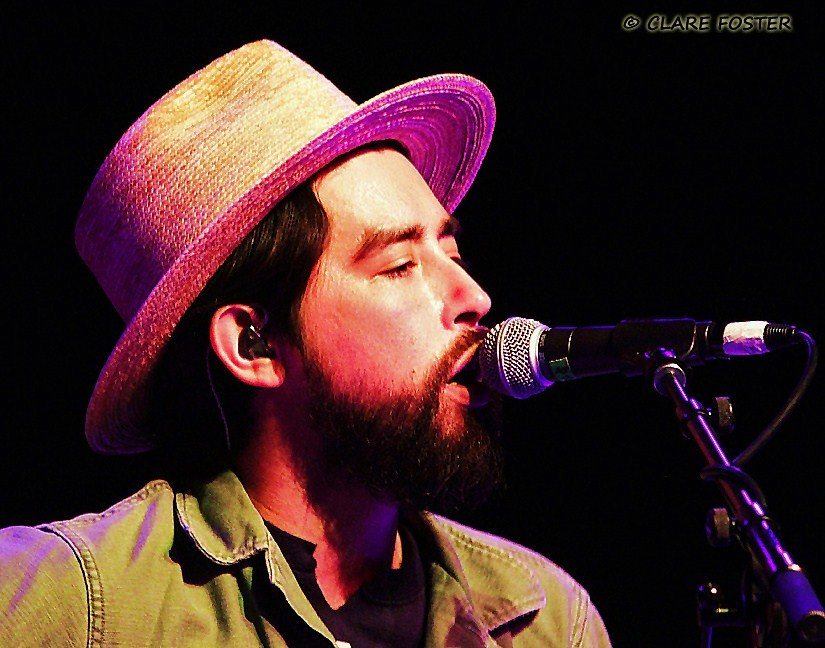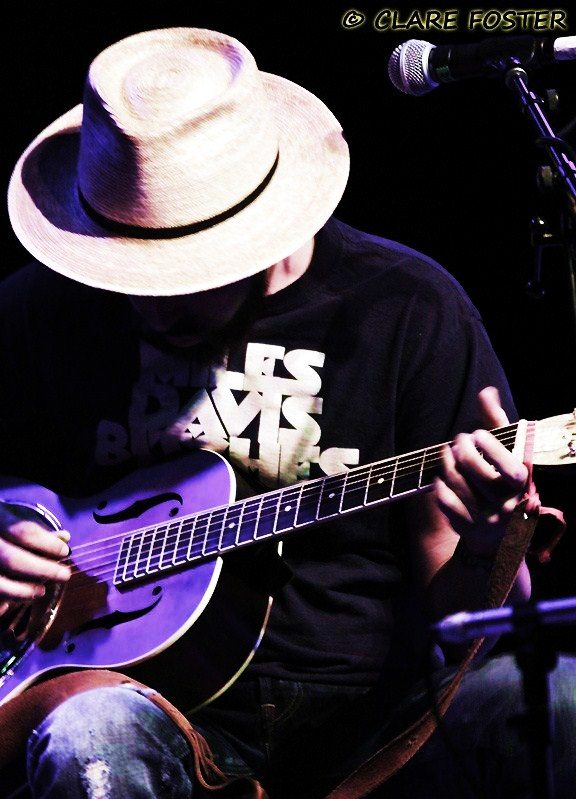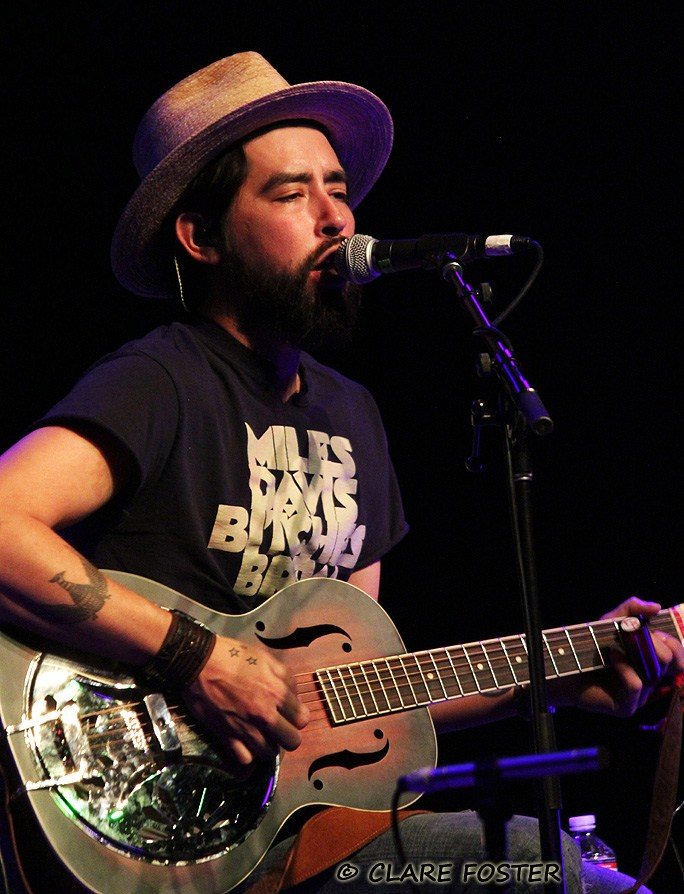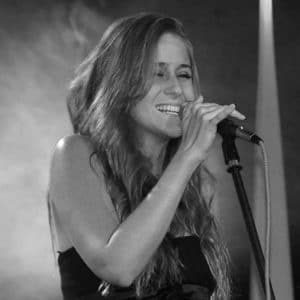
Photos by Clare Foster
Editor’s note: Click the link to read a review of Jackie Greene’s Lake Tahoe show. LINK
Jackie Greene is a musical troubadour who hasn’t gathered any moss over the last couple of years. He has been busy traveling around the country as a touring member of the iconic Black Crowes and playing in his own side project, Trigger Hippy.
Greene has released his first solo album in five years, “Back To Birth,” and it signals Greene’s return to the simple folk tunes that he built his career on. Gearing up for a fall tour that loops Greene along the West Coast, the songwriter was gracious enough to talk to us over the phone about returning to his own music and not playing any tricks with his new album.
Question: It’s been five years since your last album and you have done significant time in two good bands, the Black Crowes and Trigger Hippy. I was interested in how you got back to writing a solo album with so much time in between albums and with so much happening in between as well.
Answer: Well, I guess it’s kind of been a long time coming. I was planning on putting out my record for some time, but when I joined the Crowes in 2013, that sort of got put on hold for a year because that was a pretty big commitment. So basically 2013 went by and I ended up making the record that is out now (“Back To Birth”) in 2014. It’s been like five years since my last record and it is almost like an itch I need to scratch, badly. It was never my plan to be in a bunch of other bands. It is just something I enjoy doing and I like to do it, but really sort of my heart is with my own band and my own stuff, so I got back to doing that.
Q: How did that feel going back to your own stuff? What do you get out of writing your own stuff versus being a part of a different band, a different sound?
A: It’s a world of difference. It’s the difference between going on stage and playing your music versus playing for hire. It is quite a bit different. Things are a lot of fun of course, but the reason I got started in music in the first place is write my own songs, to make my own albums. Which isn’t to say those extracurricular activities aren’t fun or worthwhile, because they certainly are. But at the end of the day I have to remember I am a songwriter and this is what I do. All those other things don’t matter quite as much as this does to me.
Q: Now, do you feel like you come in to the studio with a lot of songs in tow or a lot of song ideas, or do you find, creatively, you work better by just banging them out in the studio? How much of this record was written before you started recording it?
A: All of it. Actually this record is interesting. Normally when I make a record, I record like 16,17, sometimes 18, 19 songs and then we sort of figure out which songs go together and make the record. But on this record, we recorded exactly the amount of songs that are on the record because I had demos for a whole load of songs and we sort of had a vetting process about which would be on the record. Which was good because it turns out we didn’t have a lot of time in the studio to make the record, so we just got right to work. The record you have in your hands is the record we went in to make. There was not a lot of screwing around.
Q: Do you think that helped you more? Not saying you were screwing around before, but was that a more efficient process? Did that work better for you this time around?
A: Well, it certainly seemed to work better. It was a different process than times before. I don’t know if I would say it was any better or any worse, I think it’s just circumstantially however you end up making a record is how you make it. For me, it seems like this time around the songs were very clear cut and the demos were very fleshed out, so it was pretty clear what the record was going to be, what it was going to feel like before we even made it. In those regards, it was a big help.
Q: In your press kit you said you wanted two things going into record this. You wanted to record it to tape and you wanted a good piano. Why were those things so important to you?
A: For one thing, a lot of songs were written on the piano. I wanted it to have that authenticity, or at least for me, to feel like in that state of mind when I wrote the song. It sort of goes back to screwing around, but I didn’t want to fiddle around with the rearranging of anything, I just wanted to do it the way that I wrote the songs. The tape part, at this point now that is just how I like to work. It is a little bit more restricting in some ways but I think that is a good thing, for me at least. I think it forces you to make decisions early on in the recording process. You only have 24 tracks and that is all you get so you start making decisions early on. You can’t just sit there and screw around with guitar parts cause once it gets on tape, that is what it is going to be. It forces everyone to be well rehearsed, which I like for me. And I have made all my records on tape anyway, so it’s more of a work preference.
Q: Do you feel like you’re drawn to one instrument over the other, guitar or piano, when writing songs?
A: I kind of view instruments as a means to an end and the end is trying to get the song. I don’t have a preference or an emotional attachment to guitar or piano. I play both things and it sort of just seemed like this record, more than usual I would say, the songs wanted to be written on piano and that’s just the way it is. I don’t know why that is, I just sort of follow the muse and I don’t try and force any of it.
Q: When you went into this album, I heard you talk about it as a very personal album. You said you wrote some songs after your father had died. I wanted to know what did you want out of the album when you went into making it? People can put their own spin on it, but what did you want?
A: I’m pretty happy with it. When we went into this record, I just felt like these songs were honest and I wanted to make a record that reflected that. I like to call it no trickery. I just wanted to make a very honest and simple record that people could relate to on sort of a deeper level than just dance music or something like that. That is all I really wanted out of it, I just wanted it to be beautiful and it did not have to be fancy and have a lot of tricks. I thought that the songs didn’t want that. The songs to me felt, for better or for worse, like some pretty simple folk songs and some blues songs and some Americana songs, which is the way I started out 15 years ago. In some ways, it is like a more mature me doing the kind of music I started out with. I wanted to reflect that, the simplicity if you will.
Q: Do you see it as the simplest record you’ve made? Looking back at your other records, is that the most notable thing to you about this record?
A: Yeah to me it is definitely on the simpler side. There is not a lot going on on this record, just a band playing in the studio. I have a record called “Sweet Somewhere Bound” which I guess technically is simpler, it’s like almost totally acoustic guitar. But other than that, I would say this is definitely on the simpler side of the last three or four records I’ve made. And to me that feels good, to strip it back to just the songs and let them stand there by themselves.
- Jackie Greene Band
Nov. 21, 2015
Crystal Bay Casino - The King Is Dead
I’m So Gone
Silver Lining
Farewell, So Long, Goodbye
Spooky Tina
Light Up Your Window
Uphill Mountain
Animal
Shaken
So Hard To Find My Way
Trust Somebody
Tell Me Mama, Tell Me Right
Back To The Bottom
Now I Can See For Miles
Shakedown Street
Encore:
Till The Light Comes - Jackie Greene Band, “Acoustic-ish”
Nov. 20, 2015
Crystal Bay Casino - I Don’t Live In A Dream
I’m So Gone
Silver Lining
Tonight I’ll Be Staying Here With You
Light Up Your Window
A Moment of Temporary Color
New Speedway Boogie
Motorhome
Grindstone
Hallelujah
A Face Among The Crowd
Take Me Back In Time
You Can’t Lose What You Never Had
Gone Wandering
Encore:
Sweet Somewhere Bound
Related story: Album review: “Jackie Greene is back” LINK
Related story: Q&A with Ziggy Marley LINK












